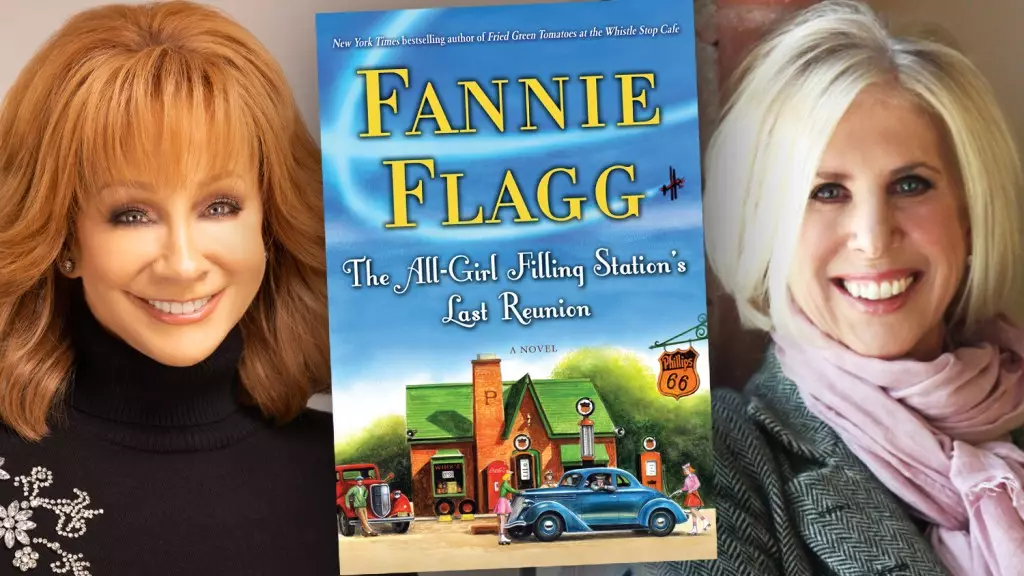In an exciting intersection of literature and film, the recent announcement by Wonder Project, an indie studio founded by Kelly Merryman Hoogstraten and Jon Erwin, marks the development of *The All-Girl Filling Station’s Last Reunion*. This adaptation of Fannie Flagg’s best-selling novel sees seasoned country music star Reba McEntire taking center stage both as the lead and producer. With talent on board that includes Oscar-winning director Callie Khouri and Tony-nominated screenwriter Bekah Brunstetter, this project not only capsulates the enduring spirit of Flagg’s work, but it also promises to resonate with contemporary audiences.
One might wonder about the significance of adapting a literary work rich in themes of identity, heritage, and female empowerment for the screen. As shared by McEntire in her reflection, she has long admired Flagg’s ability to weave compelling narratives that honor the past while exploring the intricacies of personal discovery. This combination of reverence and artistic intent sets a promising tone for the film, suggesting that it will showcase a layered storytelling approach that encourages audiences to reflect on their own histories.
Unraveling an Intriguing Narrative
Published in November 2013, *The All-Girl Filling Station’s Last Reunion* features the character Mrs. Sookie Poole, a woman navigating the complexities of family life and self-identity. As Sookie wrestles with family expectations and the domineering presence of her mother, Lenore Simmons Krackenberry, the tension for personal autonomy boils beneath the surface. The inciting incident—mysterious letters suggesting Sookie’s adoption—serves as a compelling narrative tool that drives her on a poignant journey of self-exploration.
As the plot unfolds, audiences will be introduced to the remarkable story of Fritzi Jurdabralinski and her sisters, who challenge the gender norms of their time by running the first all-girls filling station during World War II. Their bravery not only highlights the adventurous spirit of these women but also paves the way for them to become the inaugural female pilots in the U.S. Air Force. This juxtaposition of Sookie’s mundane world with the heroic tales of Fritzi forge a dynamic narrative thread that unites past and present, ambition and restraint, challenge and triumph.
The collaborative efforts of this creative team could significantly elevate the adaptation beyond mere storytelling. Khouri, known for her groundbreaking screenplay for *Thelma & Louise*, brings a profound understanding of female narratives, promising an engaging experience for viewers. Additionally, Brunstetter’s rich history in both theater and television—ranges from *This Is Us* to her musical adaptation of *The Notebook*—ensures that the screenplay will likely employ nuanced character development.
The involvement of executive producers like Ben Howard for Third Coast Content and Michael Musgrave overseeing the project for Wonder Project points to a robust production structure committed to authenticity and quality. All these elements hint at a cohesive vision that respects the source material while making necessary adaptations for the screen, marking an important crossroads where tradition meets innovation.
Fannie Flagg’s work holds a distinguished place in contemporary American literature. By utilizing her story as a foundation, the film adaptation seeks to honor not just the characters but also the cultural echoes of their experiences. Flagg’s narratives resonate with themes of Southern heritage, family ties, and the exploration of identity—issues that are not only relevant to Southern audiences but transcend geographical boundaries. The integration of these elements into a film format serves as both a tribute and a modern exploration of female narratives.
Furthermore, McEntire’s presence as both star and producer adds a unique layer of importance. Known not only for her record-breaking career in country music but also for her impactful performances in television, she embodies the duality of artistry that the film seeks to portray. This choice symbolizes an evolving narrative landscape in Hollywood, where female-driven projects are gaining traction and prominence.
As *The All-Girl Filling Station’s Last Reunion* enters development, it stands not only as an adaptation of a beloved story but also as a destination for diverse voices in filmmaking. It represents a growing recognition within the industry of the need for films that celebrate women’s stories, intertwining personal and historical themes. If executed well, this project has the potential to be both a commercial success and a cultural phenomenon, engaging audiences while instilling a renewed appreciation for the legacy of women who have changed the course of history. In this way, the film will serve as both a celebration of the past and an inspiration for future generations.


Leave a Reply